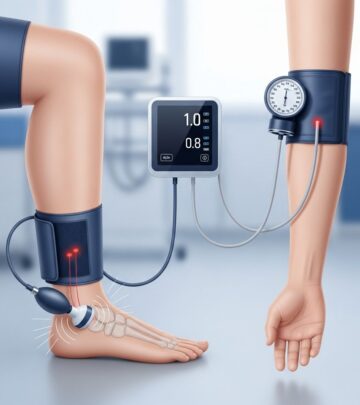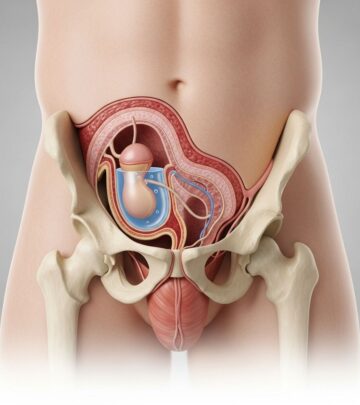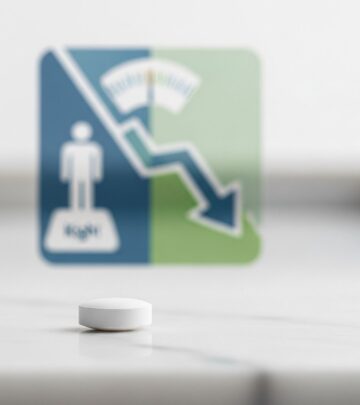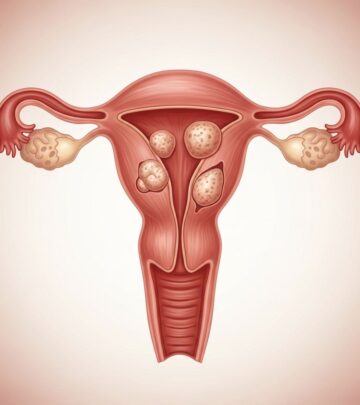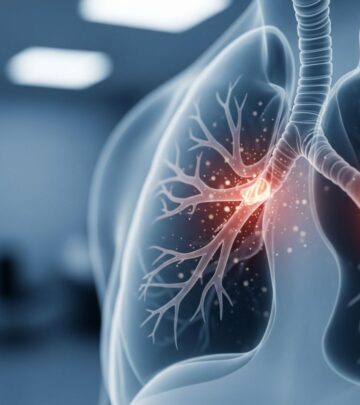Diagnosis and Treatment of Scorpion Stings
Comprehensive guide to diagnosing and treating scorpion stings, including emergency care and home remedies for mild cases.

Scorpion stings are a significant concern in many parts of the world, ranging from mild to potentially life-threatening, especially for vulnerable populations like children and older adults. Understanding the appropriate steps for diagnosis and treatment is essential to minimizing complications and ensuring a full recovery. This comprehensive guide addresses how scorpion stings are diagnosed, outlines evidence-based treatment strategies, and provides practical home remedy instructions for mild cases.
When to Seek Emergency Care
While the majority of scorpion stings cause only mild local symptoms, certain situations require immediate medical attention, particularly for children and individuals with severe systemic reactions.
- Children stung by a scorpion: Seek emergency care immediately, as children are at increased risk of serious complications.
- Severe symptoms: Promptly seek care if the person stung develops:
- Difficulty breathing
- Muscle twitching or unusual movements
- Drooling or excessive salivation
- Loss of muscle control
- Slurred speech
- Vomiting
- Persistent pain unrelieved by home interventions
- Allergic reactions: Symptoms such as hives, trouble breathing, swelling, or anaphylaxis require immediate emergency care.
For immediate guidance in the United States, call Poison Help at 800-222-1222. This connects you to your local poison control center, which can provide critical advice on your next steps.
Diagnosis of Scorpion Stings
Diagnosis relies primarily on a detailed history and careful observation of the person’s symptoms. In many cases, particularly when local symptoms are mild, additional tests are not necessary. However, in severe cases, healthcare providers may employ the following diagnostic steps:
- History and physical examination: Information about the encounter (location, time since sting, appearance of the scorpion if seen) and a description of symptoms often suffice for diagnosis.
- Tap test: In some settings, the clinician may tap the area of the sting; increased pain upon tapping may suggest envenomation.
- Laboratory and imaging tests: If symptoms are severe or systemic, blood tests or imaging (such as chest X-ray, ECG) may be performed to assess for effects of venom on the heart, liver, lungs, or other organs.
Diagnosis is typically straightforward without advanced tests unless the sting was not witnessed or other conditions are suspected.
Treatment Options for Scorpion Stings
Most scorpion stings do not require specialized medical treatment and can be managed effectively with basic first aid and observation. Treatment intensity depends on the patient’s age, overall health, and the severity of clinical manifestations.
Initial Actions and First Aid
After a scorpion sting, prompt and appropriate first aid can alleviate pain and help prevent complications:
- Clean the wound: Wash the sting site gently but thoroughly with mild soap and water.
- Cool compresses: Apply a cool compress or ice pack to the area for 10 minutes at a time, then remove for 10 minutes. Repeat as necessary. Do not apply ice directly to the skin, as this may cause further tissue damage.
- Elevation: Raise the affected limb as much as possible to reduce swelling.
- Pain relief: Use over-the-counter pain relievers (such as ibuprofen or acetaminophen). In children, paracetamol is often recommended for safety.
- Observe for worsening symptoms: Monitor for signs of systemic involvement, especially in children, elderly adults, and those with underlying health conditions.
What Not to Do After a Scorpion Sting
- Do not attempt to suck out the venom.
- Do not cut or incise the wound.
- Do not apply heat to the sting site.
- Avoid consuming food or liquids if there is difficulty swallowing.
Medical Treatment and Hospital Care
If symptoms are significant or worsen, medical management may include the following:
- Analgesics and sedatives: To address severe pain, agitation, or muscle twitching, strong pain relievers or sedating medications may be administered by healthcare providers.
- Intravenous (IV) fluids: In case of severe envenomation or shock.
- Oxygen therapy and airway management: Required if there is respiratory distress or compromised airway.
- Antivenom: In rare but serious cases—most commonly with certain species like the bark scorpion—an antivenom may be administered. Antivenom therapy can neutralize the toxins and reverse systemic symptoms, especially in children and adults who develop life-threatening complications.
Antivenom therapy should only be administered under direct medical supervision due to potential side effects and risk of allergic reactions. Several criteria may prompt its use:
- For children with moderate or severe symptoms after a sting.
- For adults with serious systemic involvement.
- If symptoms do not improve with supportive care.
Brand example: In the United States, the Centruroides (scorpion) antivenom (brand name Anascorp) is derived from horse proteins and administered intravenously. It is reserved for patients with clinically significant envenomation and should be given promptly if indicated.
Other Supportive Measures
- Tetanus prophylaxis: Check immunization records and update tetanus vaccination if needed.
- Prevent complications: Continuous monitoring may be necessary for hours in severe cases, especially for children.
- Treat allergic reactions: Emergency allergy management, including intravenous antihistamines, corticosteroids, adrenaline (epinephrine), or airway support, may be administered if there are signs of anaphylaxis.
Lifestyle and Home Remedies
For mild stings that do not involve vulnerable populations or severe symptoms, initial care at home is usually sufficient. Follow these steps:
- Thoroughly clean the area with soap and water to prevent infection.
- Apply a cool compress (not direct ice) to reduce pain and swelling. Apply in 10-minute intervals.
- Manage pain with over-the-counter oral analgesics like ibuprofen or acetaminophen.
- Avoid exertion and rest the affected limb.
- Monitor for any signs of progression of symptoms, such as difficulty breathing or persistent agitation.
- Update tetanus vaccination if necessary, especially after deep or dirty wounds.
Special Advice for Children and At-Risk Individuals
- Children are at the highest risk of developing severe complications following scorpion stings. Always seek immediate medical care for a child who has been stung.
- Older adults and people with weakened immune systems or underlying cardiac or respiratory issues should also seek urgent evaluation after a scorpion sting.
Prevention of Scorpion Stings
While avoiding all encounters with scorpions is not always possible, especially in endemic areas, several precautions can markedly reduce risk:
- Shake out shoes, clothing, and bedding before use, especially if left outside or in rural places.
- Wear sturdy footwear and gloves during outdoor activities like hiking, gardening, or camping.
- Seal cracks and window screens to prevent scorpions from entering homes.
- Keep sleeping areas off the floor when camping or in high-risk areas.
Symptoms of Scorpion Stings
Symptoms can be grouped by severity and systemic involvement:
- Local symptoms: Intense pain, swelling, numbness, tingling, burning, and warmth at the sting site. Sometimes itching or mild redness.
- Minor systemic symptoms: Headache, agitation, confusion, dry mouth, vomiting, diarrhea, muscle cramps, and twitching.
- Severe (life-threatening) symptoms: Muscle rigidity, breathing difficulties, excessive salivation, abnormal eye movements, rapid heart rate, high blood pressure, slurred speech, and unconsciousness.
- Allergic (anaphylactic) reactions: Hives, trouble breathing, vomiting, swelling of the face or throat, and, in severe cases, shock.
Possible Complications
- Delayed or inadequate treatment can result in potentially fatal complications, especially in children.
- Severe stings may lead to respiratory failure, heart dysfunction, or shock.
- Secondary infections at the wound site if not cleaned properly.
- Allergic reactions to the venom or antivenom therapy, requiring urgent intervention.
Frequently Asked Questions (FAQs)
Q. When is a scorpion sting dangerous?
A scorpion sting is most dangerous for young children, elderly individuals, and people with compromised immune systems. Anyone who develops severe symptoms or signs of an allergic reaction should seek immediate help.
Q. How quickly should I seek treatment after a scorpion sting?
Children, people experiencing severe symptoms, or those with signs of allergic reaction should seek medical attention immediately. For adults with mild symptoms, home care and observation usually suffice.
Q. What is the purpose of antivenom and who needs it?
Antivenom is administered to neutralize the effects of venom in severe cases, mainly for those with life-threatening symptoms and primarily in children or at-risk adults. It is given under direct medical supervision in a hospital.
Q. Can scorpion stings cause long-term effects?
Most people recover fully from scorpion stings within days to a week. Rarely, severe stings can lead to complications involving the heart or respiratory system, but most cases resolve without long-term issues with timely treatment.
Q. Should I be worried if I cannot identify the scorpion?
Though identifying the species can help, treatment mainly depends on symptoms. Seek help if symptoms are severe or worsen, regardless of the scorpion’s identification.
Emergency Resources and Contact Information
- Poison Help (U.S.): 800-222-1222
- For locations outside the United States, contact your local emergency services or nearest hospital.
Summary Table: Scorpion Sting Care at a Glance
| Step | Action | Recommended For |
|---|---|---|
| First Aid | Clean, cool compress, pain relief, elevation | All mild cases, especially adults |
| Observation | Monitor for progression or systemic symptoms | All, especially children and older adults |
| Medical Care | Hospital evaluation for severe/local symptoms, respiratory issues | Children, severe systemic symptoms |
| Antivenom | Administered intravenously under supervision | Severe/life-threatening symptoms only |
| Follow-up | Tetanus vaccine update, wound care, manage complications | All patients as needed |
Read full bio of Sneha Tete

